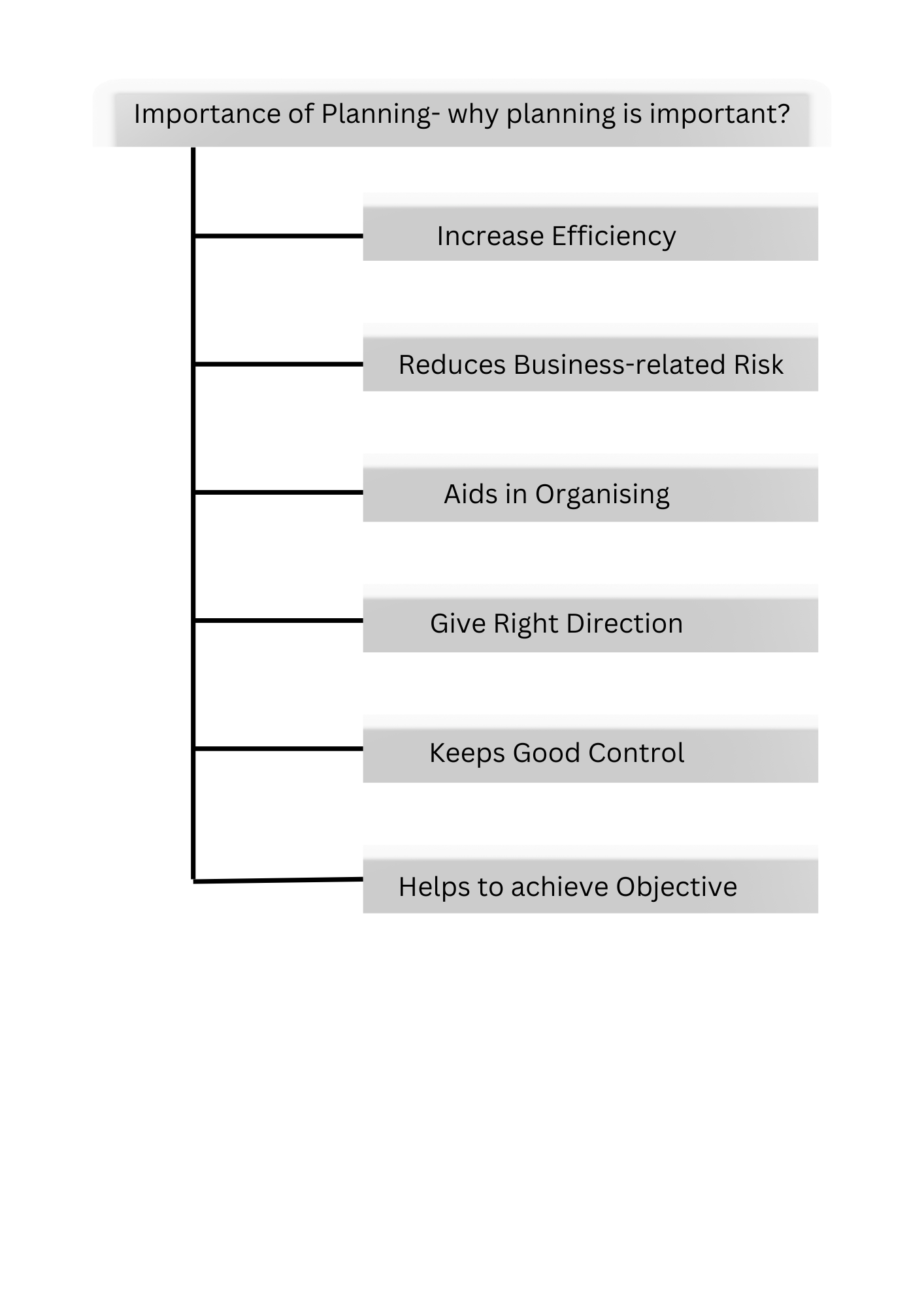Planning is a fundamental and crucial function of management that holds significant importance for organizations. Here are key reasons why planning is considered essential:
- Direction and Purpose:
- Planning provides a clear sense of direction by defining organizational objectives and goals. It establishes a purpose and a roadmap for the entire organization, guiding actions toward desired outcomes.
- Goal Achievement:
- The primary purpose of planning is to facilitate goal achievement. By setting specific, measurable, and time-bound objectives, organizations can focus their efforts and resources on what needs to be accomplished.
- Resource Optimization:
- Planning enables organizations to allocate resources efficiently. It helps in determining how resources, such as finances, personnel, and materials, should be utilized to maximize productivity and minimize waste.
- Minimizing Uncertainty:
- The business environment is dynamic and uncertain. Planning allows organizations to anticipate potential challenges, identify risks, and develop strategies to mitigate uncertainties. This proactive approach enhances organizational resilience.
- Improving Decision-Making:
- Well-thought-out plans provide a basis for informed decision-making. Managers can make better choices by aligning decisions with established goals and considering the potential impact on the organization as a whole.
- Coordination and Integration:
- Planning fosters coordination among different departments and levels of an organization. It ensures that activities are synchronized, and everyone is working towards common objectives, promoting harmony and efficiency.
- Performance Measurement:
- Plans serve as benchmarks for evaluating performance. Organizations can compare actual results against planned objectives, allowing for the identification of variances and the implementation of corrective actions.
- Motivation and Employee Engagement:
- Clearly defined plans provide employees with a sense of purpose and direction. Knowing how their individual roles contribute to the overall goals of the organization can motivate employees and enhance their engagement.
- Innovation and Creativity:
- Planning encourages organizations to think innovatively and creatively. It involves considering new ideas, exploring opportunities, and adapting to changes in the external environment, fostering a culture of innovation.
- Risk Management:
- Through planning, organizations can identify potential risks and develop strategies to manage or mitigate them. This risk management approach enhances the organization’s ability to navigate challenges and uncertainties.
- Efficiency and Productivity:
- Effective planning ensures that resources are utilized efficiently, processes are streamlined, and unnecessary redundancies are minimized. This leads to increased organizational efficiency and productivity.
- Adaptability to Change:
- Planning involves anticipating and preparing for changes in the external environment. Organizations that plan effectively are better equipped to adapt to evolving market conditions, technological advancements, and other external factors.
- Ethical Considerations:
- Planning provides an opportunity for organizations to consider ethical implications in decision-making. It allows for the integration of ethical principles and values into the strategic direction of the organization.
